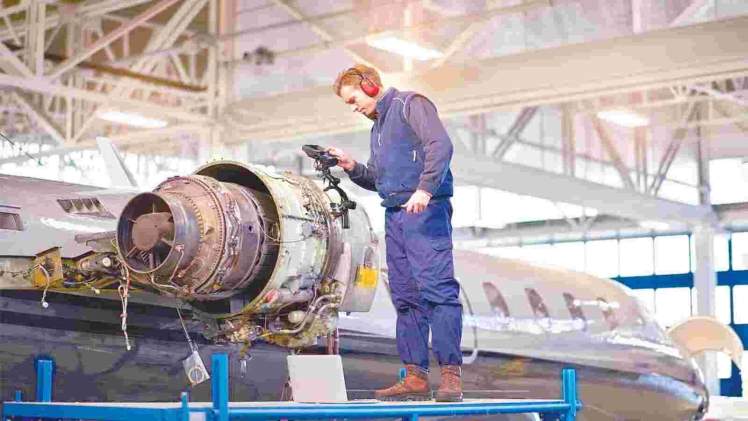How to Pursue a Career in Aerospace

A career in aerospace can be a rewarding and exciting experience. Aerospace professionals are involved in designing, manufacturing, and operating aircraft, spacecraft, missiles, and other related systems. They work on complex projects that require technical knowledge and strong problem-solving skills. This article will provide an overview of the qualifications and skills necessary to pursue a career in aerospace and information on job opportunities. It will also discuss the benefits of working in this field and how to stay up to date on industry trends.
Different Types of Occupations
To pursue a career in aerospace, individuals must first understand the different types of occupations available within the field. These include engineers who develop new technologies with advanced materials; technicians who inspect and maintain equipment; computer scientists who create software to analyze data; pilots who fly planes or helicopters; educators who teach students about aviation science; administrators who oversee operations and personnel; and marketing specialists who promote products or services. The type of job individuals can pursue will depend on their educational background and experience.
Education and Qualifications
Most aerospace occupations require a college degree in a related field, such as engineering or computer science. Individuals may also need to obtain specialized certifications and licenses if they will be working with aircraft or other sensitive equipment. There are also many opportunities for individuals who do not hold a college degree, such as pilots and technicians. It’s worth checking out courses and schools like https://cie.spacefoundation.org/space-foundation-university/, as a specific degree will help you to stand out. Your education should be tailored to the job and field you want to enter.
Skills Required for Aerospace Careers
A successful career in aerospace requires strong problem-solving skills, technical knowledge, and the ability to work well with others. Individuals should have excellent communication skills and the ability to work independently on complex projects. They must also understand safety protocols so that they can ensure the safety of themselves, their crew, and passengers when working with aircraft or other sensitive equipment. Not only that, but they should be able to think quickly and work under pressure. Your job may involve working long hours, so individuals should also be prepared to handle stress and take on extra responsibilities. It will also be helpful to have an understanding of the latest aerospace technology, as well as industry trends.
Job Outlook
The job outlook for aerospace professionals is expected to be positive. With the increasing demand for air travel and government funding for space exploration, more jobs will likely become available soon. Additionally, advances in technology and increased safety regulations will create additional opportunities for professionals with specialized skills. That means now is a great time to start exploring aerospace career options. Whilst you are researching and exploring, don’t forget to look for the best online aerospace engineering degrees, as those will give you the best chance of success.
Salary
The salary of aerospace professionals can vary greatly depending on the job title, experience level, and location. Pilots typically earn higher wages than technicians or engineers, while those working in management positions may make even more. The median annual salary for aerospace engineers was nearly $117K in 2019, according to the Bureau of Labor Statistics (BLS). Your paycheck may also depend on the type of employer you work for. For example, aerospace engineers working in the defense industry often make more money than those employed by airlines or aircraft manufacturers.
Conclusion
A career in aerospace can be a rewarding experience that offers a variety of career paths and professional opportunities. The jobs can be challenging, but they also provide individuals the chance to work with cutting-edge technology and explore new frontiers. To pursue this field, individuals should obtain a college degree and the necessary certifications while also developing skills such as problem-solving, communication, and teamwork. With the right qualifications and preparation, individuals can look forward to a bright future in aerospace.




